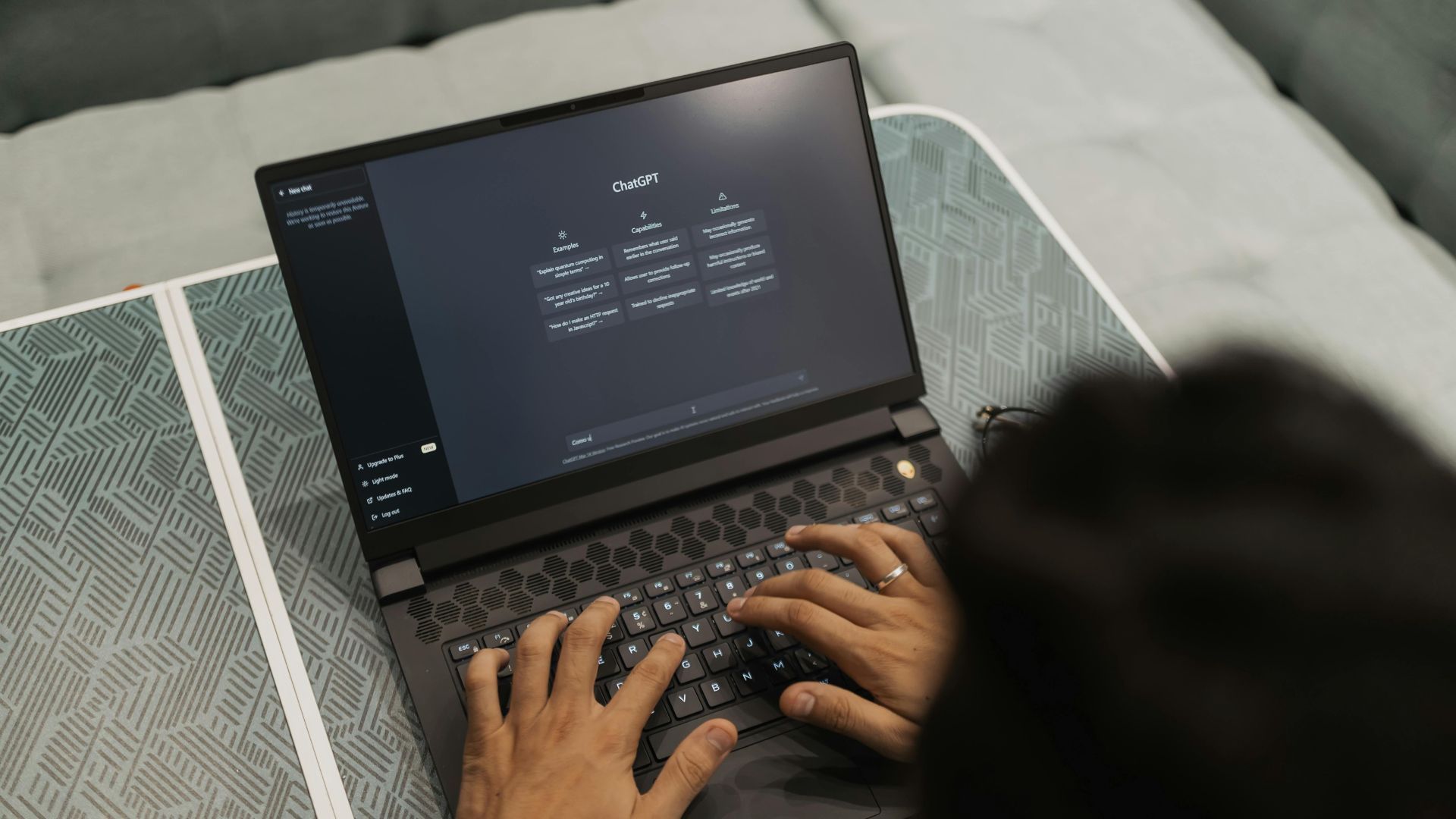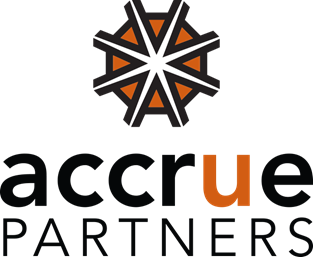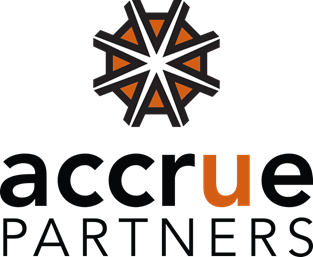
Authored by Quinn McGee, Director of Sales Enablement
This blog originally appeared on LinkedIn.
There’s no denying that AI continues to dominate conversations across industries, and talent acquisition is no exception. But as the hype continues to build, a growing tension is emerging. While the possibilities feel endless, the measurable return on investment often falls short.
During our recent IT Power Breakfast, ROI concerns were front and center. Leaders across the tech and talent space shared a common thread: although AI promises efficiency and innovation, many are struggling to tie these tools back to tangible business outcomes. That conversation confirmed what we’ve been seeing on our end. Companies are eager to explore AI, but often lack the strategy or structure to do so effectively. It's time to hit pause, not on progress but blind acceleration.
The Current Landscape of AI in Recruiting
The recruiting industry is undergoing a massive shift driven by artificial intelligence (AI) and automation. While AI promises to streamline hiring, improve efficiency, and enhance decision-making, a widespread misconception persists that AI will replace recruiters. Our 23 years of experience and high levels of historical early adoption and technology usage tell a different story.
As a leader in sales enablement, I’ve had a front-row seat to the evolution of AI in hiring, testing platforms, analyzing trends, and seeing firsthand how organizations adopt these tools. Through countless demos, repeated clarification calls, and real-world applications, one truth remains evident: AI is not a complete substitute for recruiters. In its current stage, it is a knowledge workspace that enhances workflows but still requires invested human oversight.
Last year, much like our corporate Talent Acquisition and Human Resources partners, CHROs were much more optimistic about how AI would transform the way people work. But as they do the actual work of integrating the technology into their organizations, many are getting lackluster results according to a recent edition of Fortune’s CHRO Daily.
The most crucial currency in recruiting remains relationships, not algorithms. AI can optimize sourcing, screening, and engagement, but it cannot replace the trust, intuition, and personal connections that great recruiters build with candidates and clients. Organizations that believe AI can fully replace the expertise of a recruiting firm will struggle. AI is a tool, not a magic solution. In this article, I’ll break down where AI excels, where it falls short, and why good recruiters remain irreplaceable in today’s hiring landscape.
AI vs. Automation: Understanding the Difference
One of the biggest misconceptions of AI in recruiting is the conflation of AI and automation.
What is Automation in Recruiting?
Automation in recruiting executes repetitive, rules-based tasks without adaptation. Examples include automated email sequences for candidate outreach and engagement, pre-programmed chatbots that answer FAQs, and Applicant Tracking System (ATS) workflows that move candidates through hiring stages.
What is AI in Recruiting?
AI in recruiting uses machine learning to analyze data and make adaptive decisions. Examples include AI-powered sourcing tools that refine searches based on recruiter behavior, interview intelligence platforms that analyze speech patterns, and AI-driven chatbots that learn from interactions and improve responses.
Why This Matters
Many tools marketed as "AI" are merely automation, leading to unrealistic expectations. True AI continuously learns and improves, while automation follows fixed rules. Regardless of whether a tool is true AI or automation, the best hiring outcomes happen when tools enhance, not attempt to replace, human expertise.
Jordan Cromer, Senior Implementation Consultant at Gear Partners and an AccruePartners alumna, puts it well:
“Bullhorn AI is transforming how staffing firms source, engage, and hire—enabling faster, smarter, and more data-driven recruitment. But one thing is clear: technology alone doesn’t create a competitive edge—intentional strategy does. The firms leading the way are integrating these tools with purpose, using AI and automation to boost efficiency while empowering recruiters to do what they do best: build relationships and deliver lasting impact. The future of staffing isn’t man or machine—it’s the partnership between both.”
AI Recruiting Tools: What Works and What Doesn’t?
At AccruePartners, we have demoed, considered purchasing, and are currently using several AI and automation tools, and our experience shows that true AI value comes from tools that go beyond simple automation. While many tools act as glorified note-takers, the most impactful AI solutions enhance recruiter decision-making and provide deeper insights. Let’s take a closer look at these tools and their functionalities.
AI for Sourcing and Outreach
- Seamless.AI, Lusha, Leadspace – AI-driven sourcing for contact information and lead enrichment.
- Fetcher – Automated passive sourcing and engagement.
Verdict: AI is highly effective for sourcing, but human oversight is needed to refine results and personalize outreach.
AI for Interviewing and Candidate Assessment
- MetaView, Quil – AI-driven tools that provide hiring insights, coaching, and structured interview guidance. We chose MetaView for our solutions and using this to advance our Rec-Tech Stack.
- Gong, Fathom, Otter – Primarily transcription and meeting summary tools with limited recruiter-specific AI functionality.
Verdict: AI enhances efficiency, but human intuition remains crucial in evaluating culture fit and soft skills.
AI for Candidate Engagement and Screening
- Paradox – AI chatbot that automates candidate communication and screening.
- Elly.AI – AI-driven messaging for candidate engagement.
- HireFly – AI-based screening and workflow automation.
Verdict: Great for high-volume hiring, but personalization is key to keeping candidates engaged.
AI for Internal Recruiting Operations & Decision-Making
- Bullhorn AI – AI-driven recommendations within an ATS.
- Veritas Labs (Laz) & EQ Buddy – Predictive hiring analytics.
- Bubbles – AI-powered collaboration tool for internal team communication.
Verdict: AI can enhance decision-making, but recruiters must critically interpret AI-generated insights. Heavy consideration of which tools are best for your firm or Talent Acquisition department is dependent on the type of outreach hiring of the company; there are clear differences in white collar versus skilled/blue collar strategies with these tools.
Mike Barrett, Senior Solutions Consultant with Bullhorn, offers a forward-looking take on this transformation:
“AI and Agent functionalities have the power to create efficiencies and returns on investment throughout staffing business in exciting ways. Recruiters experienced some reprieve from manual tasks with the infusion of automation in recent years. Still, new challenges presented themselves, like bringing a personalized touch to candidates and clients across an automation strategy. With AI and Agents directly in the hands of recruiters, technology can execute entire workflows in a personalized way while also augmenting the recruiters' daily capabilities with generative AI content. As recruiters and staffing firms embrace the new technology, gains will be made in accelerating the ramp time of new hires, performance improvements in recruiter activity, and accelerating the time it takes for a candidate to find a new opportunity, to name a few. Technology will not replace recruiters; it will elevate them. Recruiters adopting this new wave of technology reduce time spent on low-ROI activities and increase time spent creating better client and candidate relationships.... a true 'win-win.'”
Additional Challenges and Limitations of AI in Recruiting
Lack of personalization: One of the most significant risks of AI in recruiting is that it can make candidates look indistinguishable from one another. AI-generated resumes and cover letters often lack the personalization needed to stand out in today’s competitive and uncertain talent market. While AI-driven applications can streamline the process, they often fail to effectively showcase a candidate’s unique experience and skill set. That’s why skilled recruiters remain essential—not just for conducting interviews but for uncovering true talent beyond what AI screening can detect.
Human preference: Another challenge is that senior-level, top-tier, and passive candidates often avoid AI-driven screening processes. The majority of experienced professionals prefer human interaction over AI-powered phone or video screenings, especially when they aren’t actively job searching. AI-only screening also eliminates the ability to ask follow-up questions or dive deeper into a candidate’s responses, leading to gaps in understanding. Ultimately, relying solely on AI creates inefficiencies, as hiring teams still need to review AI-generated screenings before conducting human interviews.
Data: Without clean data, AI will be a bust for the Recruiting and Talent Acquisition functions. Data in itself could consume 50% of our time due to the immense change in the job economy; job changes create havoc on data. Here at AccruePartners, we have spent almost 2 years getting our data hub cleansed, scrubbed, updated, or archived. And it is working!
Final Thoughts
AI is here to stay, and we should embrace it as it excels at automating repetitive tasks such as screening, scheduling, and sourcing, allowing recruiters to focus on more strategic efforts. It can also provide data-driven hiring insights and help scale high-volume hiring initiatives with greater efficiency. However, AI has its limitations. Bias and ethical concerns remain a challenge, as AI models can unintentionally reinforce biases in hiring decisions. Additionally, AI lacks human judgment, making it difficult to evaluate cultural fit and personality nuances. Over-automation also poses a risk—when the hiring process feels too impersonal, candidates may disengage.
The key is balance and to explore with curiosity. The best recruiters will learn how to leverage AI while maintaining a human touch. AI is not here to replace recruiters; it’s here to elevate them to more meaningful work, allowing AI to handle repetitive follow-up and administrative functions. Firms that embrace AI as a tool rather than a crutch will gain a competitive edge. The future of recruiting belongs to those who know how to blend AI efficiency with human expertise. AI won’t steal your recruiting job, but a recruiter who knows AI might.





